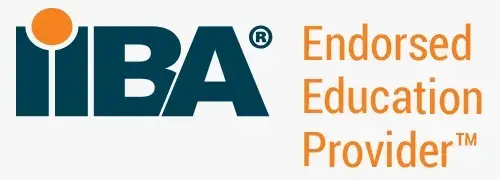The two of the most renowned certifications in the product management world are primarily known as the CSPO and
PSPO Certifications. These certifications validate the holder's proficiency and abilities as a product owner in
the Scrum framework.
Before we proceed and compare the two certifications, it is important to understand that both certifications are
based on the same body of knowledge, the Scrum framework developed by
Ken Schwaber and Jeff Sutherland, which
means that the principles, procedures, and language are the same in both CSPO and PSPO certification.
Let’s take a quick look at both these certifications and how they differ from one another.
What is PSPO?
Scrum.org offers the Professional Scrum Product Owner (PSPO) Certification, which is a two-day intensive
training course that teaches candidates how to profit from software systems and products. Moreover, it is an
entry-level certification programme.
The PSPO exam is considered a little difficult to clear, but it is regarded as the best in class when it comes
to product ownership certificates. Moreover, the certification is valid for a lifetime.The goal of the course is
to assist participants in lowering the total cost of ownership of their systems and goods, which would be
extremely advantageous to the organization.
How to get PSPO Certified?
Here is how you can get PSPO Certified by successfully following these steps:
- Enroll in the PSPO training course offered by Techcanvass.
- After enrolling, follow and take the 2-day course that is offered by the Professional Scrum Trainers.
- Once completing the training course, Scrum.org will send you a password that you can use to take the
exam.
- The next step is to simply take the 1-hour long exam that includes 80 multiple-choice questions.
- In order to clear the PSPO exam, you must score 85% in the exam.
- On successfully clearing the exam, you will earn your PSPO certification.
- A person can apply directly on the Scrum.org website if they do not wish to take the course. A personal
password and an Assessment key are provided to you upon registration. The exam can then be taken by going directly to the link.
What is CSPO?
For people who desire to take on the job of a Product Owner in a Scrum Team, Scrum Alliance offers the CSPO
(Certified Scrum Product Owner) certification. A CSPO certification will demonstrate to potential employers that
you are dedicated to maximising the contribution of your team and to producing customer-satisfying products. The
numerous sectors around the world recognise this accreditation.
People also look for What Is a Product Owner Certification?
How to get CSPO Certified?
Here is how to earn your CSPO Certification:
- Enroll at a recognized institute
Selecting and enrolling with a training facility that is a Registered Education Provider (REP) of the
Scrum Alliance will be your first step in becoming a Certified Scrum Product Owner.
- Study the Agile Manifesto and Scrum Guide
Reading the Agile manifesto and Scrum guide may not be necessary to enroll in the CSPO course, but it will
help you understand the concepts more quickly.
- Attend a two-day certification course
A mandatory two-day, 16-hour CSPO training led by a Certified Scrum Trainer (CST) is required in order to
acquire a CSPO certificate.
- Recommendation from the Certified Scrum Trainer (CST)
After you complete the two-day CSPO training course, your Certified Scrum Trainer will update your
information on the website of the Scrum Alliance (the organization in charge of issuing CSPO certificates)
- Await clarification from the Scrum Alliance
Scrum Alliance will send you an email to log in on your Scrum Alliance account and accept your CSPO
license once your CST updates your information.
- Accept Scrum Alliance-Provided License
Once you login and change your password, you can easily obtain your license.
- Download the CSPO Certificate
The CSPOcertificate may be downloaded and used when you have accepted the license.
What are the Key Differences between PSPO and CSPO?
Here is what you need to know about PSPO and CSPO Certification and how they differ from one another.
- Accrediting body
The PSPO Certification is accredited by Scrum.org, whereas the CSPO is accredited by
Scrum Alliance.
- Difficulty level
When it comes to the difficulty level between the PSPO and CSPO certifications, you must know that for PSPO
you have to take the exam, which is difficult to crack. Whereas, there is no exam for the CSPO
certification.
- Cost of certification
The PSPO Certification costs around 20,500 INR and on the other hand the CSPO costs around 23,597 INR.
- Training
For the PSPO Certification, there is no restriction for taking the training course. However, for CSPO
certification, you must take a 2-day training course offered by a Certified Scrum Trainer.
- Renewability of certifications
A PSPO Certification has a lifetime validity, whereas the CSPO certification is valid for 2 years, where
you have to pay USD 100 for the renewability along with earning 20 scrum units.
Which Certification should I Choose?
The primary goal of the CSPO certification is to comprehend how Scrum operates and the function that the Product
Owner plays within a Scrum team. On the other hand, the Professional Scrum Product Owner (PSPO) certification's
goal is to maximize the value of software systems and products by helping candidates obtain a thorough
understanding of the Product Owner role.
Moreover, the CSPO certification is valid for 2 years after you undergo a two-day training, whereas the PSPO is
valid for a lifetime.
It is important for you to weigh all the pros and cons of both these certifications, and then select the one
which is most desirable to you.
Conclusion
PSPO and CSPO are two of the most known certifications for potential product owners. You may choose either one
depending upon your interest and experience in the product ownership domain. Regardless of the certification you
opt, you will gain several benefits to grow and excel in the industry.
About Author

Abhishek Srivastava
-Senior IT Professional , CBAP Certified
Abhishek Srivastava is a seasoned IT professional with diverse experience in Banking, Insurance, Utility and Education domains.
Managing large accounts, Program management & Business Analysis has been his forte, having done so for customers like ICICI Bank,
NTPC & many other International customers.
In the past, he has been associated with companies like Mastek and 3i Infotech Ltd (erstwhile ICICI Infotech Ltd). An NIT (Erstwhile REC)
/ IIM Kozhikode graduate, now as an entrepreneur, he is pursuing his dream of creating an organization for providing quality training
in the fields of Project Management and Business Analysis. His other areas of interest are Business Analysis consulting and mentorship.
Over the years, he has mentored and guided more than 1000 professionals



